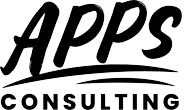A great team’s daily behaviors and actions are advised by a clear collection of beliefs and intentions around its work. A team manifesto is a great way to provide that clarity and ensure everyone is aligned.
The following is a manifesto written for a product development team I once led:
We are a world-class product development team.
We work hard, and we work smart.
This starts, first and foremost, by practicing empathy.
We view customers as the sun around which everything else revolves. Everything we prioritize and execute is framed in relation to their missions and the roadblocks they hit along the way.
In doing so, we have to be ridiculously innovative. But innovation cannot be measured in the amount of code we write, the number of products we deploy, or the amount of time those products are open in our customers’ browser tabs. Technology is just a means to an end. Our goal must always be to maximize the value we offer in relation to our customers’ missions, regardless of how much or how little technology is required to do so.
Then there is trust. Trust is a privilege, not a right. It is granted to us - conditionally - by customers, co-workers, and investors.
Customers trust that we solve their problems efficiently while keeping their data private and safe.
Co-workers trust that we have foresight and that we communicate - we always think a few steps ahead and give them time to weigh options, provide feedback, and adapt to changes.
Investors trust that we stay in business, grow it quickly, and keep an open mind about all of the ways in which we can conduct ourselves within that context.
Above all, these constituents expect that we honor our commitments by being accountable and holding each other accountable. Trust erodes if this basic covenant is broken.
And because this trust is won or lost as a team, we succeed and fail as a team.
Often, working within these constraints to be empathetic and trustworthy, we find that we must do things that make us uncomfortable. This is okay. We are operating in a sweet spot when we are prioritizing short-term concerns while being mindful about the long-term.
This means writing code that is clean, easy to understand, and reasonably reusable and scalable. But not prematurely optimized for distant possibilities.
This means engaging in client services occasionally to understand how our decisions and execution at the product level impact folks who must implement it and use it.
This means paying off technical debt and product debt in the order that is likely to have the largest impact for the lowest cost. Often slowly. But always consistently.
At the root of all of this discomfort one will often discover a lack of experience and a fear of the unknown. We embrace inexperience: We stay curious, ask for help, always validate our assumptions, and don’t prematurely pass judgement.
When learning and validating, we take care to not serve our own agendas. We don’t project intrinsic beliefs. We presents facts. We ask questions. We wait for feedback. We absorb.
In this process, we embrace new technology. We embrace legacy technology. We embrace new decisions. We embrace past decisions. We question everything, but we decide on the right things. We base decisions on facts and commit to them only if they serve to further improve the foundation of empathy and trust that holds all of this up.
And when some of these decisions inevitably turn out to be wrong, we make sure that our curiosity allows us to quickly learn from the failures. We fail fast.
Meanwhile, as many teammates embrace inexperience, others find opportunities to embrace experience. It is no one person’s job to share knowledge, mentor, and train; it is everyone’s, regardless of position or seniority.
Finally, none of this works if we’re not exceedingly clear about expectations. We know our goals and we know our roles. If we don’t, we ask. If we disagree, we speak up. And if there are stakeholders relying on us who need more clarity, we seek to provide it.
For many, simply agreeing with the values and principles herein can be a great challenge. For the few who can agree, the execution is exponentially more challenging.
It’s not particularly easy to hold yourself accountable to the standards associated with a world-class product development team. In fact, it’s quite possibly the most difficult endeavor you’ll attempt for the remainder of your career. But remember this - no great company is built overnight. And there’s nothing better than building one with other people who are feverishly devoted to solving the same problems and trusting each other in the process.
Does your team share in its beliefs and intentions? If you’re in doubt, a team manifesto is a great way to spur conversation and gain consensus. Referencing it frequently from there is a great path toward long-lasting alignment.


